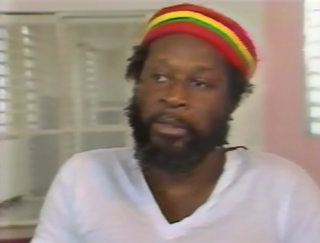A Quote by Michelle Alexander
The prison-industrial complex employs millions of people directly and indirectly. Judges, prosecutors, defense attorneys, prison guards, construction companies that build prisons, police, probation officers, court clerks, the list goes on and on. Many predominately white rural communities have come to believe that their local economies depend on prisons for jobs.
Quote Topics
Attorneys
Believe
Build
Clerks
Come
Communities
Companies
Complex
Construction
Court
Defense
Defense Attorneys
Depend
Directly
Economies
Goes
Goes On
Guards
Indirectly
Industrial
Jobs
Judges
List
Local
Local Economies
Many
Millions
Millions Of People
Officers
People
Police
Prison
Prison Guards
Prisons
Probation
Prosecutors
Rural
Rural Communities
White
Related Quotes
Most new prison construction has occurred in predominately white, rural communities, and thus a new and bizarre form of segregation has emerged in recent years. Ghetto youth are transferred from their decrepit, underfunded, racially segregated schools to brand-new high-tech prisons located in white rural counties.
One of the reasons that so many people of color and poor people are in prison is that the deindustrialization of the economy has led to the creation of new economies and the expansion of some old ones – I have already mentioned the drug trade and the market for sexual services. At the same time, though, there are any number of communities that more than welcome prisons as a source of employment. Communities even compete with one another to be the site where new prisons will be constructed because prisons create a significant number of relatively good jobs for their residents
Kids are growing up in communities in which they see their loved ones cycling in and out of prison and in which they are sent the message in countless ways that they, too, are going to prison one way or another. We cannot build healthy, functioning schools within a context where there is no funding available because it's going to building prisons and police forces.
The prison industrial complex, to put it in its crassest term, is a system of industrial mass incarceration. So there's what you call bureaucratic thrust behind it. It's hard to shut off because politicians rely upon the steady flow of jobs to their district that the prison system and its related industries promise.
If you talk about the prison-industrial complex, I've fought against the prison-industrial complex when I called for a repeal of the Rockefeller drug laws. The biggest impediment to get the laws changed was the lobbyists. Whether you're talking about healthcare, jobs going overseas, or tax reform, you're always coming up against lobbyists.
The war on drugs causes other supplemental crimes to take place because of the original illegality of it. But then again, that's the other reason that they're fighting it is the corporate prisons they have now. Because they've privatized all our prisons, corporations have to make money, and the only way they can make money is, I believe, the prisons have to be at least 80-90 percent full. That's why the United States - which is home of the brave, land of the free - we have more people in prison than any other country in the world.
The de industrialization of the US. economy based on the migration of corporations into third world areas where labor is very cheap and thus more profitable for these companies creates on the one hand conditions in those countries that encourage people to emigrate to the US. in search of a better life. On the other hand, it creates conditions here that send more black people into the alternative economies, the drug economies, women into economies in sexual services, and sends them into the prison industrial complex.
We have a number of brothers left in the prisons, about 15 of them. And for the most part, they're in bad condition. Most of us are getting older, you know. I believe all of them is 60 years or older. They've been in prison for long periods of time. Many of them should have never been in prison at all. They were framed and illegally convicted.



































